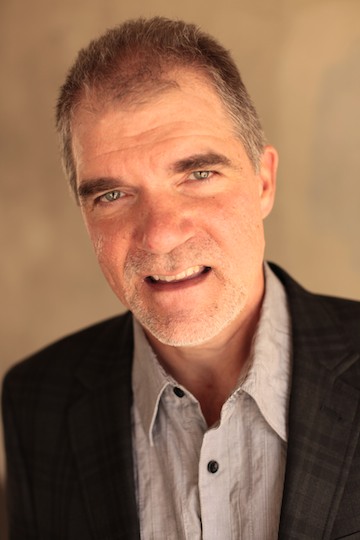
The terms distress and eustress were coined in 1975 by endocrinologist Hans Selye in his landmark work on the effects of stress
The nature of change itself creates a certain degree of stress. Our reactions can be influenced by our perceptions, which include whether the change is chosen or imposed, and if the outcome is positive or negative. Life transitions we perceive to be negative cause distress, while those seen as positive cause eustress. In either event, however, as we consider the ramifications of moving away from our accustomed homeostasis, or comfort zone, the mind and body react primarily to the fact that a change has occurred.
Whether positive or negative, expected or unexpected, life transitions result in leaving behind that which is familiar and facing the unknown. They require coping with mixed emotions such as vulnerability and excitement, anxiety and resolve, disappointment and relief, apprehension and inspiration, motivation and polarization.
Among the most stressful life changing events are:
- Death of a spouse, parent or loved one
- Marital separation or divorce
- Serious illness
- Marriage
- Career change or retirement
LOVE & FEAR
The fundamental relationship of love and fear offer a profound and fascinating framework for inspiring and transformative thoughts. They are also critical to managing the life changes that ultimately challenge each of us.
Love and fear are elemental forces we are born with and experience throughout our lifetimes, yet they defy absolute comprehension. Certain psychological theories of the mind consider love and fear as our primary emotions, with all other emotions being secondary. Physiologically, love and fear are tied to our survival instinct and the release of the stress (fear) hormones adrenaline and cortisol, and their anti-stress (love) counterpart, oxytocin. On a mental, emotional and physical basis, love connects us—within ourselves, to each other, and to the world around us—while fear separates us.
“Every human thought, word, or deed is based on fear or love. Fear is the energy which contracts, closes down, draws in, hides, hoards, harms. Love is the energy which expands, opens up, sends out, reveals, shares, heals.”
~Neale Donald Walsch
Fear often arises in false perceptions of threats that can turn small issues into big ones. Love frequently manifests as little things, intuitive gestures and kind acts, offered in response to larger challenges. Time factors into this dichotomy because many fearful reactions are rooted in our preoccupation with rehashing the past or worrying about the future, while the transcendent qualities of love can only be experienced in the present. This is one reason the ancient disciplines of yoga and meditation teach that tranquility and connectedness are achieved by being present in the moment, a philosophy that draws upon the sage and enduring concept of sacred time.
SACRED TIME
Time is also an elemental force that defies absolute comprehension. Time in the prevailing, linear sense is not a proven constant of the universe; in fact, it is a man-made convention. Perhaps this lends credence to the indigenous notions of time as a sacred, cyclical relationship to the celestial bodies, the cycles of day and night and the turning of the seasons, which are represented in various cultures by myriad depictions of the circle and wheel as universal symbols of life.
Celtic wisdom resolves the conundrum of time by contemplating it in two distinct aspects:
- Historical time as linear and consisting of the past, present and future; and
- Sacred time as circular and existing solely in the present.
Quantum physics considers time in the context of our relationship with the ever expanding universe. Certainly our individual and collective consciousness expands throughout our lives. We grow older. And, hopefully; wiser.  To the degree our memories consist of cherished experiences, footprints covered over by the course of time but which still imprint love in our awareness, we know happiness, fulfillment, and excitement. When those footprints are impressions of fear and regret, however, we can also know bitterness, disenchantment, and apprehension. Our emotional attachments to the past, both positive and negative, can create expectation for the future. By practicing being present in the moment—without resistance, judgment or attachment to outcome—we become more cognizant of anxious feelings in ourselves and others without being distressed by them, and realize how simple acts of love can diffuse that fear.
To the degree our memories consist of cherished experiences, footprints covered over by the course of time but which still imprint love in our awareness, we know happiness, fulfillment, and excitement. When those footprints are impressions of fear and regret, however, we can also know bitterness, disenchantment, and apprehension. Our emotional attachments to the past, both positive and negative, can create expectation for the future. By practicing being present in the moment—without resistance, judgment or attachment to outcome—we become more cognizant of anxious feelings in ourselves and others without being distressed by them, and realize how simple acts of love can diffuse that fear.
SURRENDER
Our lives are characterized by stressful transitions, events both expected and unexpected, that challenge our functioning, self-esteem and sense of purpose. As we endeavor to manage these changes, let us be mindful of the interrelationship of love and fear, and the importance of being present in the moment. The rich and storied history of our journey through the years—our relationships, vocational and avocational pursuits, health and well-being—provide the vital basis of our identity, which, in the absence of fear, lovingly surrenders emotional attachments to the past.
Even during times of grief, the tomorrow we build for ourselves happens today. Therefore, it is critical to let go of the feelings of regret and sorrow that naturally arise, which is accomplished by consciously investing in the here and now. Relinquishing expectations founded on what has gone before and embracing the challenge we have inherited; responding to the demands of the moment with compassion and empathy, both for ourselves and others; choosing eustress over distress; indeed, this is how life change catalyzes into spiritual growth, and becomes our sacred time of transition.
©2016 Shawn Quinlivan, C.Ht. & Cathexis Therapeutic Imagery. All Rights Reserved.
Cathexis Therapeutic Imagery specializes in innovative approaches to workplace wellness, mindfulness training, and personal development. Via private coaching, presentations, workshops, training events, and our partnership in the unique online wellness community Your Wellness Room—used by Kaiser Permanente, EFactor and other notable companies—our nationally recognized programs and practices help people and organizations make positive changes. Please call for a free consultation at (818) 512-4371 or contact us via email.

